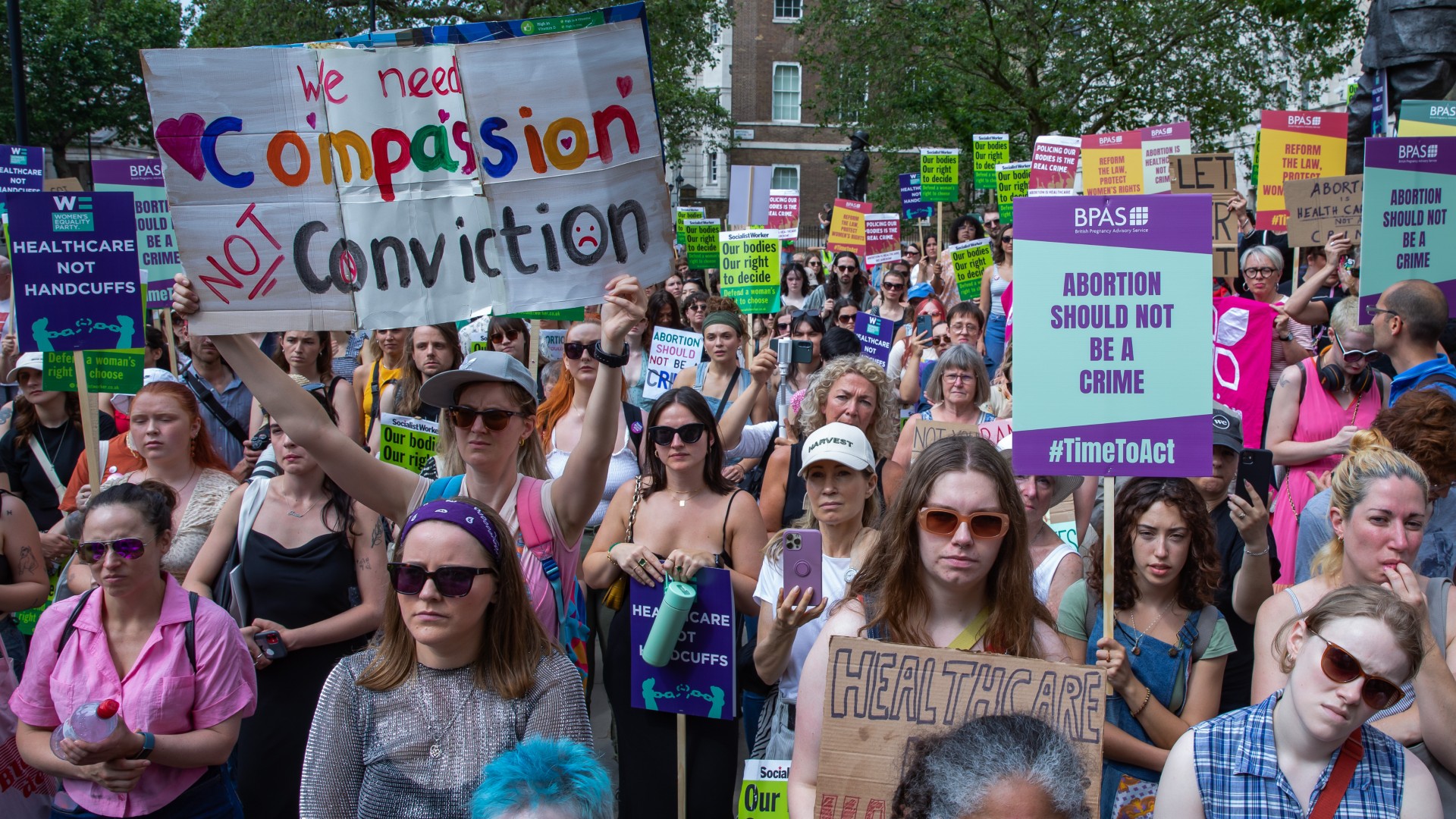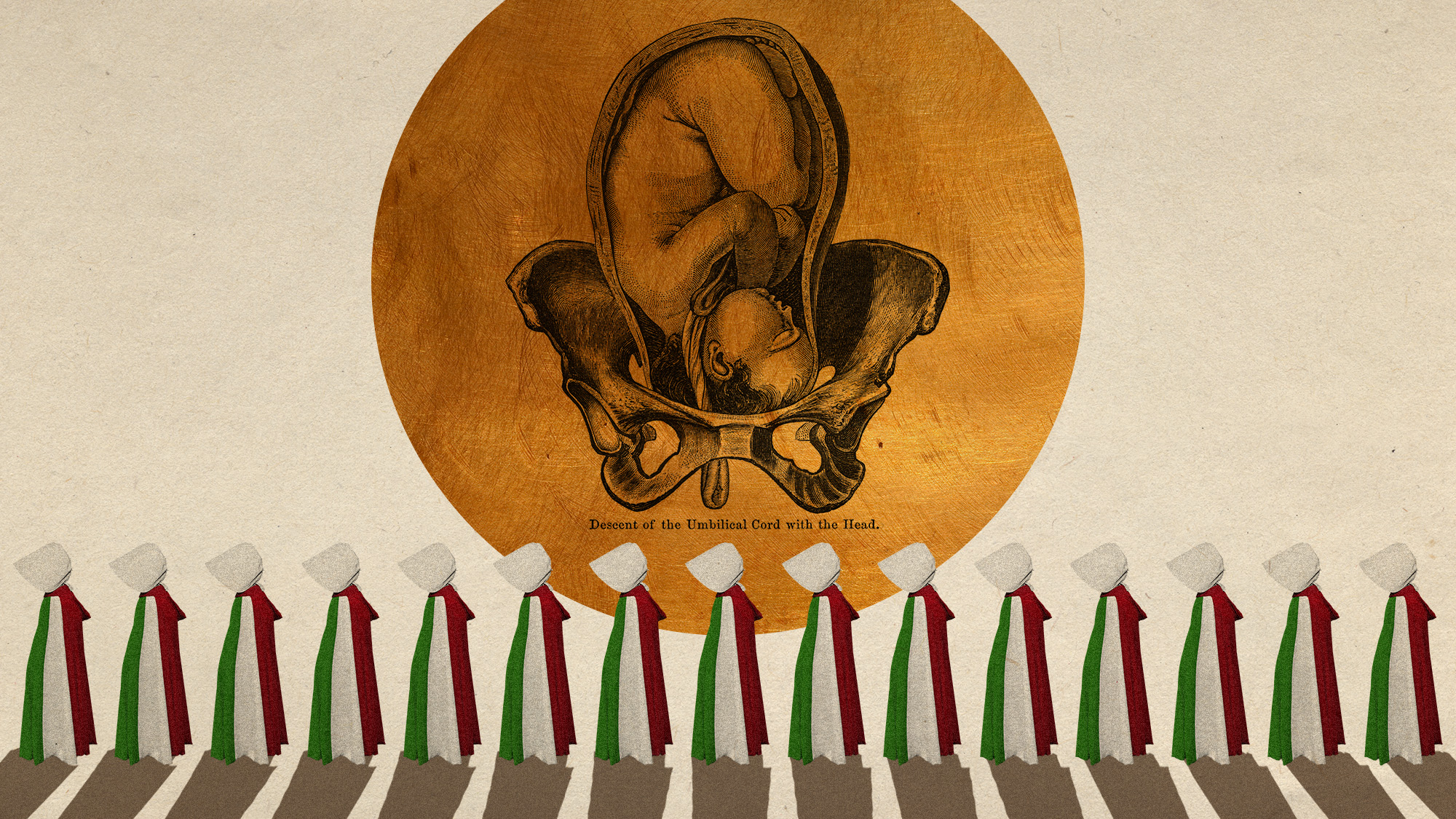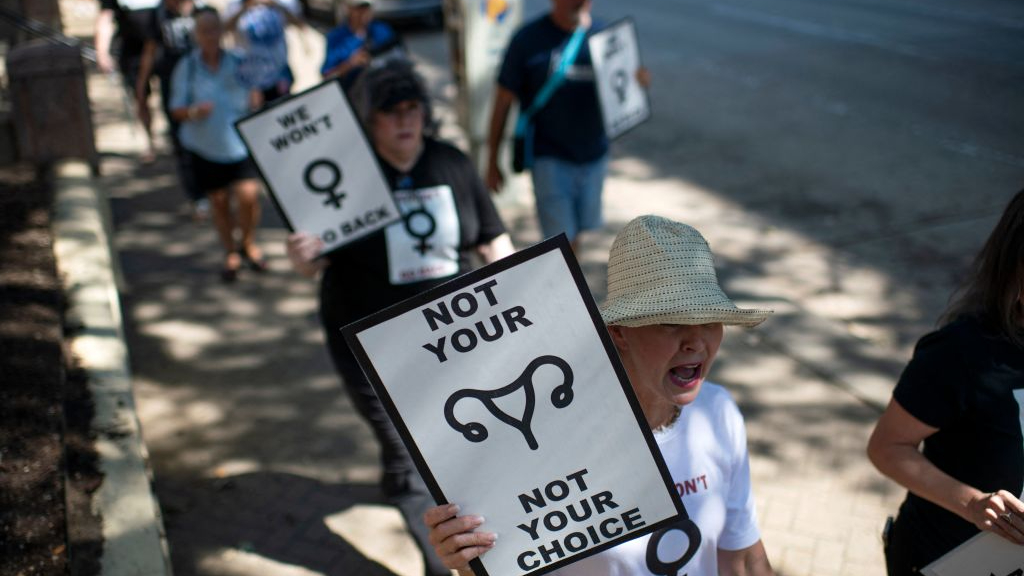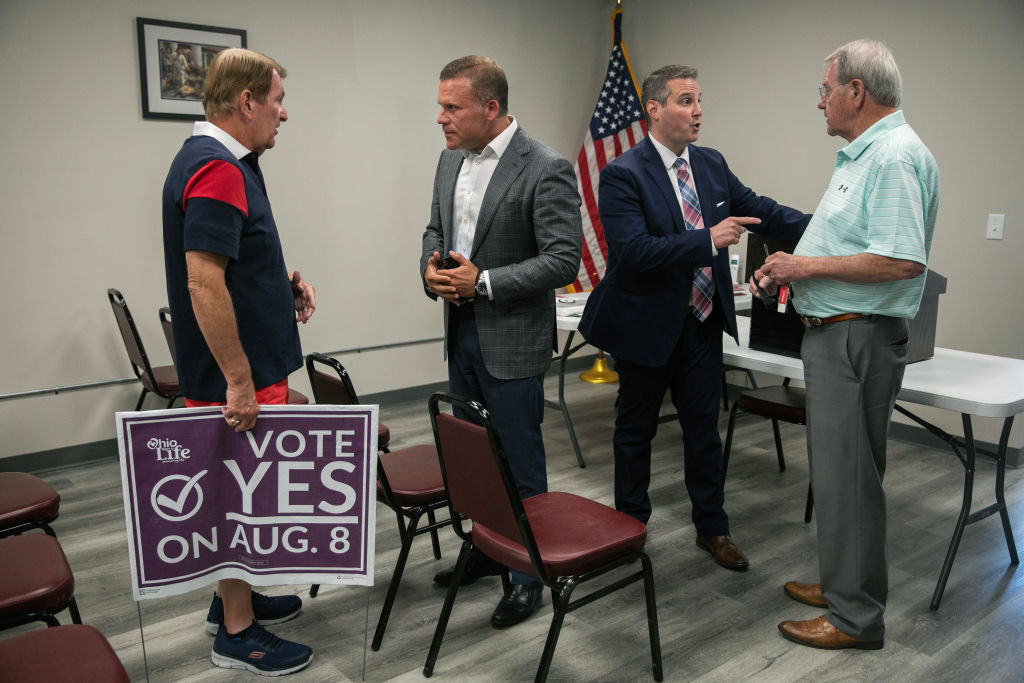The complications around companies paying for abortion travel


A free daily email with the biggest news stories of the day – and the best features from TheWeek.com
You are now subscribed
Your newsletter sign-up was successful
In the aftermath of Dobbs v. Jackson, which overturned Roe v. Wade's federal right to abortion, about half of U.S. states have either already banned abortion or are likely to do so in the near future. Several large corporations — including Starbucks, Amazon, Lyft, Microsoft, and PayPal — responded by announcing they would pay for employees in states that restricted abortion to travel out of state to terminate their pregnancies. Dick's Sporting Goods offered to reimburse up to $4,000 in travel expenses. Commentators jumped into the debate: Do the companies' intentions matter? And will there be fallout?
Right-wing anti-capitalism
Fox News host Tucker Carlson claimed that abortion rights advocates are actually pawns of big business. "Corporate America wants you childless," he said last week. Employees with families "demanded higher wages to support their children, and in many cases they formed unions to get those raises." Children also increase companies' healthcare costs and "compete [for] the employee's attention."
Anti-Dobbs protesters, Carlson said, are enraged by the mere suggestion that "choosing a family over service to global capitalism" might lead to a more fulfilling life. He described the practice of subsidizing employees' out-of-state abortions as "exploitation, no better than what the cotton mills once did to 14-year-old girls."
The Week
Escape your echo chamber. Get the facts behind the news, plus analysis from multiple perspectives.

Sign up for The Week's Free Newsletters
From our morning news briefing to a weekly Good News Newsletter, get the best of The Week delivered directly to your inbox.
From our morning news briefing to a weekly Good News Newsletter, get the best of The Week delivered directly to your inbox.
Emily Stewart of Vox wasn't as nearly as confident of the alliance as Carlson seemed to be. "One complicated aspect of companies now saying they'll help support workers needing reproductive care is that some of those same companies also played a role in how we got here in the first place," she wrote, citing corporate donations to anti-abortion politicians.
Stewart concluded that the abortion travel subsidies were "generally, a good thing," though she also described them as "part of a troubling trend ... where the public increasingly leans on corporations to solve problems because the government will not."
A strain on federalism
States with strict anti-abortion laws are already fighting back. Texas Attorney General Ken Paxton (R) said his office is considering fining companies over $100,000 for every out-of-state abortion they fund. New York Daily News columnist Brandon Friedman wrote that the policy would be a "great way to get businesses to leave Texas."
Conservative commentator Ben Shapiro disagreed, arguing that companies would choose pro-business red states with strict anti-abortion laws over highly taxed and regulated blue states every time. "You want to go to economic war over abortion? We'll find out pretty damned quickly which side is going to win," he said.
A free daily email with the biggest news stories of the day – and the best features from TheWeek.com
Stewart made a similar point, arguing that Florida Gov. Ron DeSantis' (R) war on Disney set a "disturbing precedent" in which red states bully companies into abandoning their stances on social issues.
Others suggested the status quo cannot last. "How can something be completely legal in one state and a capital offense in another — particularly in a country where people move so frequently and casually from one state to the next?" asked Robert Tracinski in Discourse. Tracinski went on to predict that states will attempt to ban crossing state lines to get an abortion, which in turn "echoes dilemmas from the era of slavery" and "raises the prospect of an underground railroad for abortion."
Justice Brett Kavanaugh attempted to head off the possibility of such a regime, writing in his concurring opinion to Dobbs that no state has the power to "bar a resident of that State from traveling to another State to obtain an abortion." But that hasn't stopped the speculation. In The Nation, Elie Mystal noted that the Confederate States of America included "the lack of enforcement of the Fugitive Slave Act on their list of casus belli" against the United States.
On July 8, President Biden signed an executive order that, among other provisions, "will convene private pro bono attorneys, bar associations, and public interest organizations" to provide legal representation to abortion seekers and providers, including "protecting the right to travel out of state to seek medical care." Robin Marty, the director of an Alabama abortion clinic, told Politico that Biden's executive order "won't do anything" to help women "who simply can't handle the logistical aspect" of traveling out of state to obtain an abortion.
What about women who can't travel?
Not all women work for companies that provide travel reimbursent for out-of-state abortions. Stewart noted that if abortion travel "is covered through the employer's health plan, workers who aren't on the health plan — like part-time employees or contractors — wouldn't be covered."
"Some people will travel out of state. However, many people will not be able to do so, particularly people of color and those living in strategically disenfranchised communities," wrote David N. Hackney, an Ohio obstetrician specializing in high-risk pregnancies, in The New York Times. Ohio bans abortions once a fetal heartbeat can be detected.
Shapiro found the equity argument unconvincing. If "white privileged women will still be able to get abortions," it's because of the efforts of "the left," he said in a video posted Saturday. "The right would like those privileged white women also not to get abortions, last I checked," Shapiro quipped.
Update July 11: This story has been updated to include information about President Biden's July 8 executive order.
Grayson Quay was the weekend editor at TheWeek.com. His writing has also been published in National Review, the Pittsburgh Post-Gazette, Modern Age, The American Conservative, The Spectator World, and other outlets. Grayson earned his M.A. from Georgetown University in 2019.
-
 What to know before filing your own taxes for the first time
What to know before filing your own taxes for the first timethe explainer Tackle this financial milestone with confidence
-
 The biggest box office flops of the 21st century
The biggest box office flops of the 21st centuryin depth Unnecessary remakes and turgid, expensive CGI-fests highlight this list of these most notorious box-office losers
-
 The 10 most infamous abductions in modern history
The 10 most infamous abductions in modern historyin depth The taking of Savannah Guthrie’s mother, Nancy, is the latest in a long string of high-profile kidnappings
-
 Is the UK about to decriminalise abortion?
Is the UK about to decriminalise abortion?Talking Point A rise in prosecutions has led Labour MPs to challenge the UK's abortion laws
-
 Abortions rise to record level 'due to cost of living'
Abortions rise to record level 'due to cost of living'Speed Read Low-income women face 'heart-breaking' choice, warns abortion charity chief
-
 Italian senate passes law allowing anti-abortion activists into clinics
Italian senate passes law allowing anti-abortion activists into clinicsUnder The Radar Giorgia Meloni scores a political 'victory' but will it make much difference in practice?
-
 France enshrines abortion rights in constitution
France enshrines abortion rights in constitutionspeed read It became the first country to make abortion a constitutional right
-
 Texas judge approves abortion of nonviable fetus, drawing threat from Texas attorney general
Texas judge approves abortion of nonviable fetus, drawing threat from Texas attorney generalSpeed Read Kate Cox petitioned to terminate her doomed pregnancy, salvaging her uterus and the option to try for more children
-
 Ohio voters defeat GOP measure to raise referendum threshold
Ohio voters defeat GOP measure to raise referendum thresholdSpeed Read
-
 Ohio is voting on whether to raise the bar on referendums — and a popular abortion amendment
Ohio is voting on whether to raise the bar on referendums — and a popular abortion amendmentSpeed Read
-
 Abortion law reform: a question of safety?
Abortion law reform: a question of safety?Talking Point Jailing of woman who took abortion pills after legal limit leads to calls to scrap ‘archaic’ 1861 legislation
